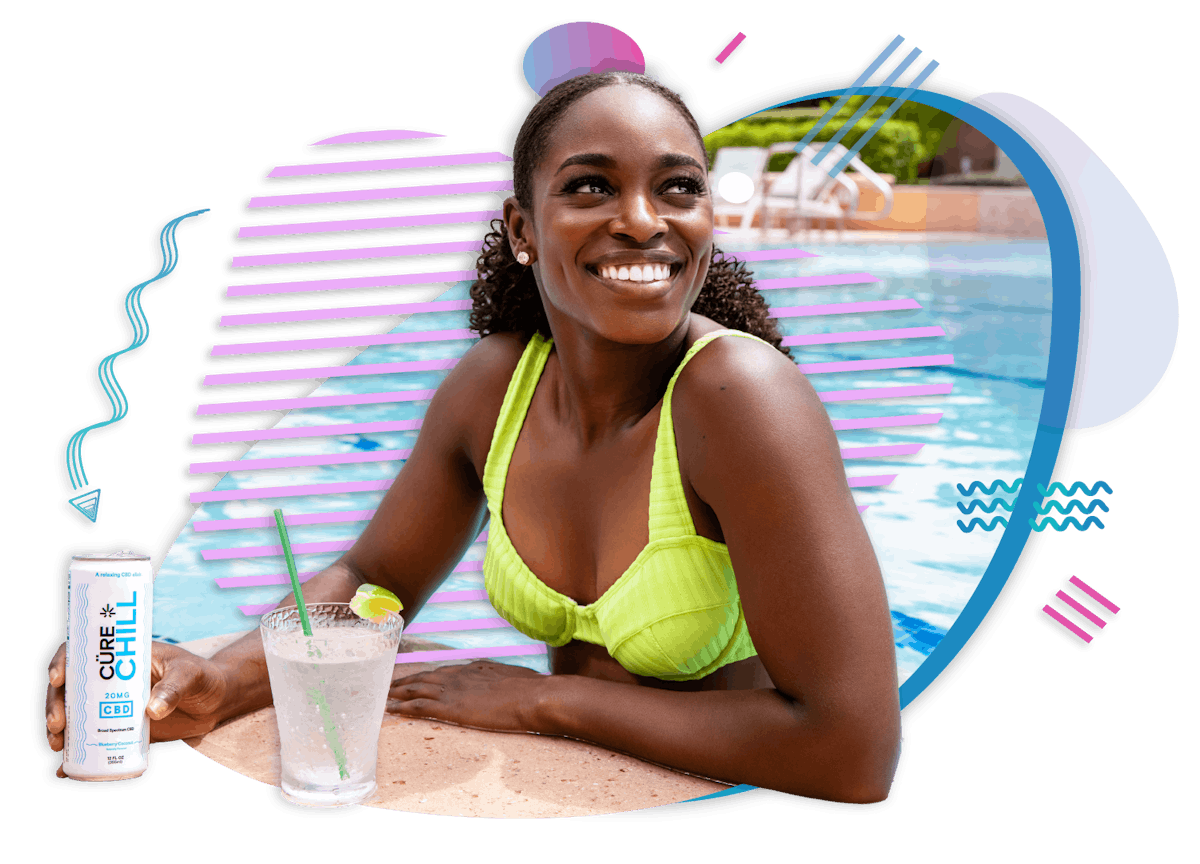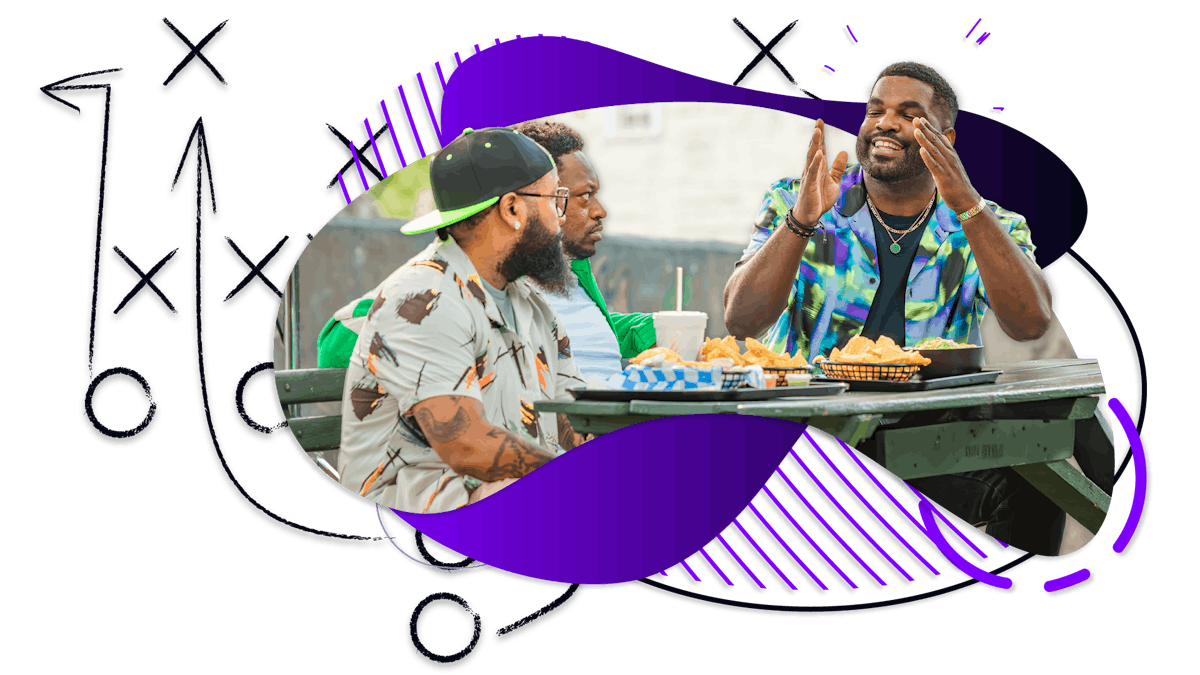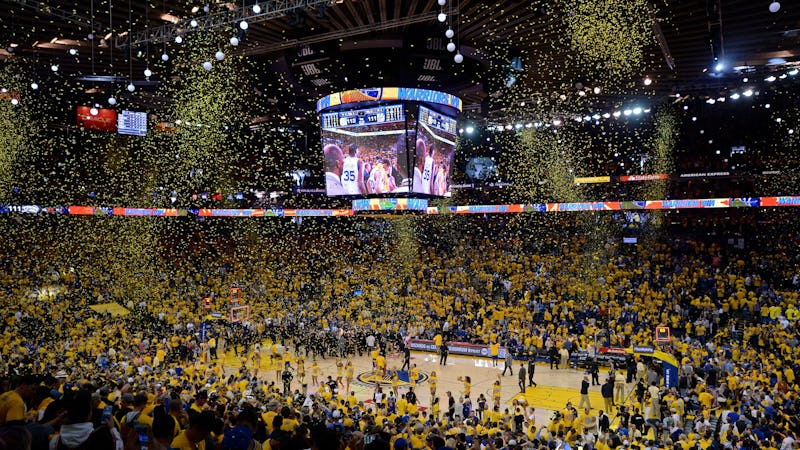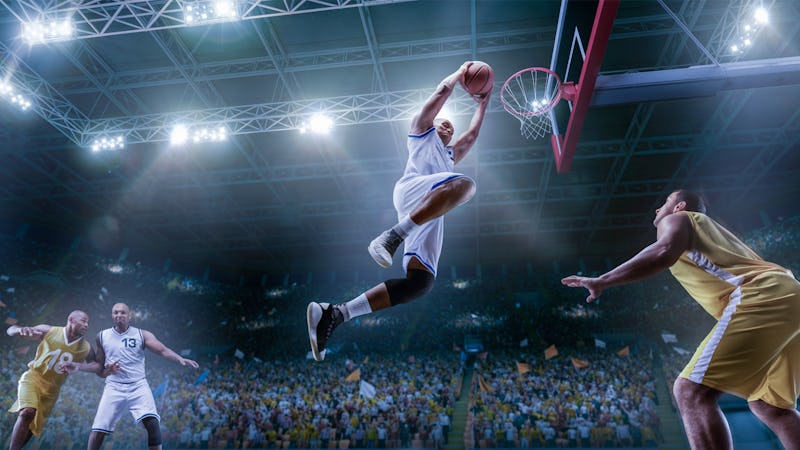Athletes are Brands Too: The Essential Guide to Successful Marketing
In the world of sports, where competition is fierce, and every athlete strives to outdo their rivals, standing out from the crowd is not only about showcasing physical prowess but also about creating a strong, recognizable personal brand. With the rise of social media and digital marketing, athletes are no longer just competing on the field; they are also competing for the attention and loyalty of fans worldwide. Athletes are brands too, and this blog post will take you on a journey through the essential elements of successful athlete branding in digital age, guiding you through the strategies and challenges athletes face in building their unique brand and leaving a lasting legacy.
Short Summary
- Athletes can use personal branding to build credibility, attract sponsorships and gain visibility.
- Successful athlete brands are created by defining a unique value proposition, creating content and leveraging social media platforms.
- Collaborations & endorsements are essential for successful athlete branding. Managing controversies & public relations is key to maintaining an image of success.

The Power of Personal Branding for Athletes
Personal branding is essential for all professional athletes, and college athletes, to create a unique identity, generate revenue, and interact with their fans. Defining a mission statement, unique position, visual identity, core values and brand story are all part of creating an effective brand strategy. These components help shape the public's perception of a company's identity. The significance of athlete branding lies in its ability to amplify an athlete's image and generate a favorable impression among supporters. It also serves as a means of connecting with the public, providing a channel for their narrative to be shared across various mediums.
Creating strong personal brands can help athletes demonstrate credibility to their audience, build meaningful connections with their fans, attract potential sponsors, and ultimately achieve success and recognition. The sports marketing industry has seen the power of solid personal brand branding in action, with the likes of Michael Jordan, who built a strong brand that transcended his athletic accomplishments and turned him into a household name in the world of sports and beyond.
The Role of Personal Branding in Sports
Personal branding in the sports industry refers to the practice of creating and maintaining an identifiable identity for a sportsperson that is linked to their sport and their achievements. This practice is an essential part of the sports marketing industry, as it enables athletes to establish a positive reputation, secure sponsorships and endorsements, and enhance their visibility and influence among sports fans.
To build a successful personal brand marketing front, athletes should identify their unique value proposition, produce consistent and captivating content, employ various social media marketing platforms, collaborate with pertinent brands, and maximize endorsement prospects as part of their marketing strategies. However, challenges such as maintaining a balance between personal life and public image, addressing controversies or public relations issues, and comprehending their target audience should not be overlooked.
Benefits of a Strong Personal Brand
A strong athlete brand carries the benefit of increased value to sports teams, sponsors, and renowned sporting entities, which can lead to collaborations with a sports marketing agency. The primary motivation for athletes to develop their own athlete branding is to leverage their influence over others through various digital marketing channels.
Creating strong personal brands can help athletes demonstrate credibility to their audience, build meaningful connections with their fans, attract potential sponsors, and ultimately achieve success and recognition. Moreover, athlete branding can provide a lasting benefit to sportspeople after they have retired, allowing them to remain relevant on the market, especially if they maintain active social media accounts.

Building Your Athlete Brand: Strategies and Best Practices
Building an athlete brand requires a strategic approach that involves defining a unique value proposition, creating consistent and engaging content, and leveraging social media platforms. Consistency is paramount in athlete marketing and branding; maintaining a consistent message and positive image is crucial to achieving lasting success in sports marketing.
Experimenting with various content types and formats can help athletes identify the most successful elements for their marketing strategy. Additionally, as an athlete's public profile grows, their advertising budget is likely to increase, typically more money covered by the sports organization or company to which the athlete belongs.
Defining Your Unique Value Proposition
A Unique Value Proposition (UVP) is a succinct statement that outlines the advantages of a product or service, how it addresses customers' needs, why it stands out from the competition, and why customers should purchase it. Having a unique value proposition is essential in order to distinguish your product or service from the competition and effectively communicate its value to potential customers.
Creating a unique value proposition requires identifying your target audience, comprehending their needs and wants, researching the competition, and formulating a statement that effectively conveys the value of your product or service. Some successful examples of unique value propositions include Nike's "Just Do It" slogan, Apple's "Think Different" campaign, and McDonald's "I'm Lovin' It" slogan.
Creating Consistent and Engaging Content
Maintaining consistency in athlete branding is essential in order to ensure that the intended message is conveyed to the audience. Athletes can interact with their fans and cultivate their personal brand by launching an athlete's podcast, initiating a sports blog article, and uploading videos to YouTube.
Creating content tailored to the target audience and adhering to the values established for the brand is crucial for fostering engagement with followers and attracting potential sponsors. Having a podcast or an active YouTube channel can provide the benefit of repurposing certain content for other social media platforms, allowing athletes to reach a wider audience across different platforms.
Leveraging Social Media Platforms
Social media provides athletes with an opportunity to build a platform to connect directly with their fans and followers. Athletes can benefit from using social media and other platforms to share their journey and promote events, merchandise, or campaigns. This strategy is a great way for them to reach out to their fans and build their following. However, relying solely on a social media platform for athlete branding is inadequate and could lead to athletes missing out on beneficial opportunities and potential income.
Twitter PPC, a cost-effective advertising platform, can be employed to promote athlete branding, offering a respectable CTR of 1-3%. Authenticity of sports content is essential on platforms like YouTube, so athletes should not publish anything that does not reflect their true personality and perspective.

Athlete Brand Collaborations and Endorsements
Collaborations and endorsements are integral to effective athlete branding. Partnering with relevant brands and maximizing endorsement opportunities can help college athlete build a strong personal brand, enhance visibility, and generate more income.
Working with branding and marketing manager and experts allows athletes to spend time to concentrate on their training while leveraging their expertise to develop a distinct and influential brand identity. Partnering with sports brands enables athletes to create exclusive content and share motivational stories in their own words, further strengthening their brand.
Partnering with Relevant Brands
Collaborating with pertinent brands can offer access to fresh target audiences, heighten brand recognition and reliability, result in new customer acquisition, and augment revenue. When searching for suitable brands to collaborate with, athletes should take into account their target audience, the brand’s values, and the potential for mutual gain.
When partnering with brands, athletes should ensure that the terms of the partnership are clearly defined, a timeline is created, and both parties are in agreement. Additionally, maintaining transparency and professionalism within the relationship is paramount, while being cognizant of potential conflicts of interest, the possibility of negative publicity, and the risk of the brand taking advantage of the athlete.
Maximizing Endorsement Opportunities
Athletes can secure endorsement deals in which they are remunerated for promoting a product or service. Securing appropriate endorsement opportunities can assist an athlete in constructing their own brand, and augmenting their visibility.
Identifying appropriate endorsement opportunities requires researching potential partners, comprehending the brand products target demographic, and haggling an agreement. Examples of successful endorsement and sponsorship deals include Maria Sharapova's partnerships with Nike and Evian, as well as her founding of the candy company Sugarpova and co-ownership of the UV-focused skincare company Supergoop!

Navigating Challenges in Athlete Branding
Navigating challenges in athlete branding includes finding the right balance between personal life and public image, as well as managing controversies and public relations. Certain difficulties may arise when attempting to maintain a balance between one's personal life and public image, such as finding an appropriate balance between personal and professional, content marketing, addressing any negative publicity, preserving genuineness, and catering to a diverse audience.
Managing controversies and public relations is integral to sports marketing, as it aids in the promotion of athletes, teams means brands, and organizations through various communication outlets, showcasing their reputation in a favorable light. Developing a crisis communication plan, monitoring your social media presence, and responding promptly and suitably to any negative publicity are all strategies that can be used to manage controversies and public relations.
Balancing Personal Life and Public Image
Maintaining a balance between personal life and public image is of paramount importance for athletes, as it can have a direct effect on their sports career and potential opportunities. It is essential to cultivate a positive public image while also leading a satisfying personal life.
When posting personal content on social media as a professional athlete, it is suggested to share photos that give an insight into your interests and personality, while avoiding getting too personal. This allows pro athletes to connect with their fans on a personal level without oversharing or crossing boundaries.
Managing Controversies and Public Relations
Managing controversies and public relations can have a considerable effect on an athlete's personal brand and the brands they represent. Positive public relations contribute to the enhancement of an athlete's reputation and augment their visibility, whereas negative public relations can detrimentally affect an athlete's reputation and result in a reduction in their visibility.
Developing a crisis communication plan, monitoring social and traditional media, and responding promptly and suitably to any negative publicity are all strategies that can be used to manage controversies and public relations. Moreover, it is imperative to be proactive in promoting positive messages and stories about the athlete or team to maintain a positive public image.

Examples of Successful Athlete Brands
LeBron James, Serena Williams, Lionel Messi, and Stephen Curry serve as prime examples of the most successful athletes and athlete brands in digital era. Each of these athletes has leveraged their personal brand to create successful partnerships and endorsements, consequently becoming widely recognized and admired in the world of sports and beyond.
LeBron James
LeBron James' athlete brand has been successful due to his exceptional talent and charm both on and off the court, the numerous awards and championships he has acquired, his large fan base, his co-founding of a prosperous media and entertainment company, and his astute investments.
He has become a global icon and a role model for many, inspiring people worldwide to strive for greatness and never give up on their dreams. He has also used his platform to advocate for social justice and to bring attention to important causes.
LeBron James is an example of how hard work and dedication can lead to success. He has achieved greatness both on and off the field.
Serena Williams
Serena Williams' successful athlete brand can be attributed to her numerous accomplishments on the tennis court, her endorsements with major brands such as Nike and Pepsi, and her ventures outside of sports, such as her fashion line 'S by Serena' and her efforts to promote gender equality, health awareness, and social justice causes.
She has become a role model for many, inspiring people to strive for excellence everyday life and never give up on their dreams. Her success has been a testament to her hard work and dedication, and she continues to be an example of what can be achieved with determination and perseverance.
Lionel Messi
Lionel Messi becoming today's world successful athlete brand is largely due to his numerous endorsements with renowned brands such as Adidas, Gatorade, Pepsi, and Budweiser, as well as his multiple business ventures, including his own clothing line, a charity foundation, and a soccer academy.
These endorsements and business ventures have helped to solidify Messi's status as one of the world's most recognizable and successful athletes ever. His brand has become synonymous with success, and his influence has extended beyond the world of sports. He has become a global icon, inspiring millions of people around the world.
Stephen Curry
Stephen Curry's athlete brand has found success through his on-court accomplishments as a three-time NBA Champion, his new position as President of Curry Brand, and his efforts to enhance his personal brand via social media posts and his YouTube channel, which boasts over 1.5 million subscribers.
Curry has leveraged his success to create a powerful brand that transcends basketball. He has become a global icon, appearing in commercials, hosting events and speaking engagements, and launching his own line of apparel and shoes. He has also become a role model for young athletes, inspiring them to reach their goals and strive for greatness.
Gaining Valuable Insights
In the competitive world of sports, an athlete's personal brand is a critical asset, one that requires careful nurturing and understanding. This is where a brand perception survey becomes an indispensable tool. Just as businesses utilize these surveys to understand how customers perceive their brand, athletes can gain insights into how fans, sponsors, and the general public view their personal brand.
A brand perception survey for an athlete can help in several ways:
- Understanding Public Perception: Athletes can gauge how they are perceived in terms of professionalism, charisma, reliability, or any other traits they wish to be associated with. This feedback is vital for shaping their public image and personal branding strategies.
- Aligning with Audience Expectations: Surveys can reveal what fans and the public expect from the athlete, not just in terms of performance but also behavior, social media presence, and endorsements. This alignment can lead to stronger fan engagement and loyalty.
- Identifying Brand Strengths and Weaknesses: By understanding the strengths and weaknesses in their personal brand, athletes can work on areas that need improvement while capitalizing on their strengths.
- Enhancing Marketability: A strong, positively perceived personal brand can increase an athlete's marketability to sponsors and advertisers. Knowing how they are perceived can help them pitch themselves more effectively to potential sponsors.
- Cultural and Demographic Insights: Athletes often have a global audience. Brand perception surveys can provide insights into how they are perceived across different cultures and demographics, allowing them to tailor their brand accordingly.
- Career Management: For athletes, career management is crucial, and understanding their brand perception can guide decisions related to career moves, public appearances, and more.
- Crisis Management: If an athlete faces a public relations crisis, understanding how it has affected their brand perception can guide the response and recovery strategy.
Summary
In conclusion, successful athlete branding involves a strategic approach to defining a unique value proposition, creating consistent and engaging content, leveraging social media platforms, using media attention, forming lucrative collaborations and endorsements with brand partners, and navigating challenges such as balancing personal life and public image and managing controversies and public relations. By learning from the examples of successful athlete brands like LeBron James, Serena Williams, Lionel Messi, and Stephen Curry, athletes worldwide can harness the power of personal branding to elevate their careers and leave a lasting legacy in the world of sports.
Frequently Asked Questions
Can an athlete be a brand?
Yes, athletes can absolutely be brands! With the right tools, resources, and mindset, an athlete can use their success in their sport to make a lasting name for themselves in the world of business.
Branding is a powerful tool that can help student athletes create a unique identity and stand out from the competition. It can also be done.
What does it mean to be a brand athlete?
Being a brand athlete means creating and maintaining a public persona to represent yourself and your abilities, ultimately becoming a symbol of success and value in the market. It involves crafting an identity with which fans can relate, using personal attributes as well as connections with teams, sponsors, and other public figures.
This identity should be carefully crafted and managed to ensure that it is consistent with the athlete's goals and values. It should also be tailored to the target audience, taking into account their interests and preferences. This will help to create a strong economy.
Can an athlete be a brand?
Yes, athletes can be brands. With an understanding of their individual strengths and a clear vision for the future of sports careers, these individuals can leverage their sports success to become powerful influencers in other areas.
They can use their platform to promote causes they believe in, create content that resonates with their fans, and to create content that resonates with larger audience than their fans.
What does it mean to be a brand athlete?
Being a brand athlete means using your identity and accomplishments to create a strong presence in the market, as well as establishing a lasting reputation that follows you wherever you go. As a brand athlete, you become the face of the sport or team you represent and actively engage in setting yourself apart from other athletes in the market.
What is the biggest sports person brand in the world?
Nike is the biggest sports person brand in the world, dominating the industry of athletic apparel, accessories and footwear with over 49 billion U.S. dollars in sales during the period from January 2022 to January 2023.


